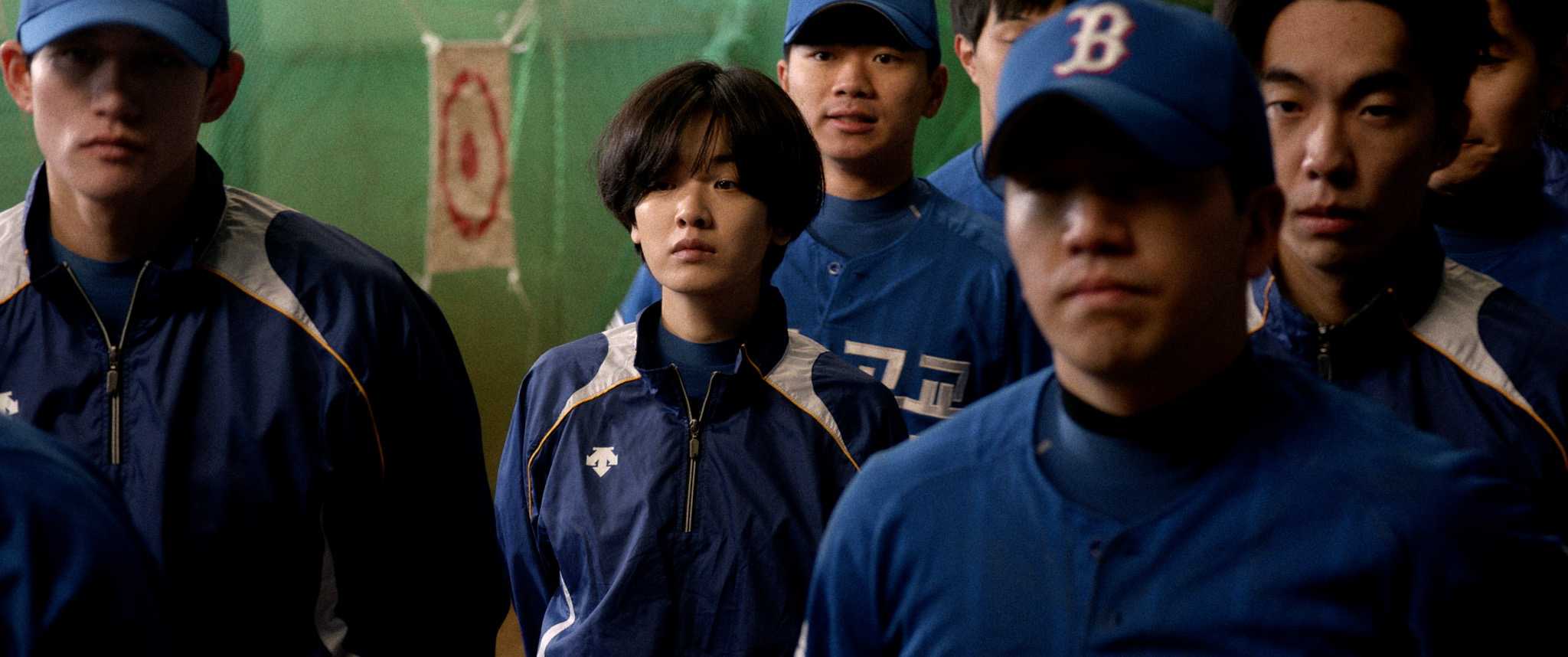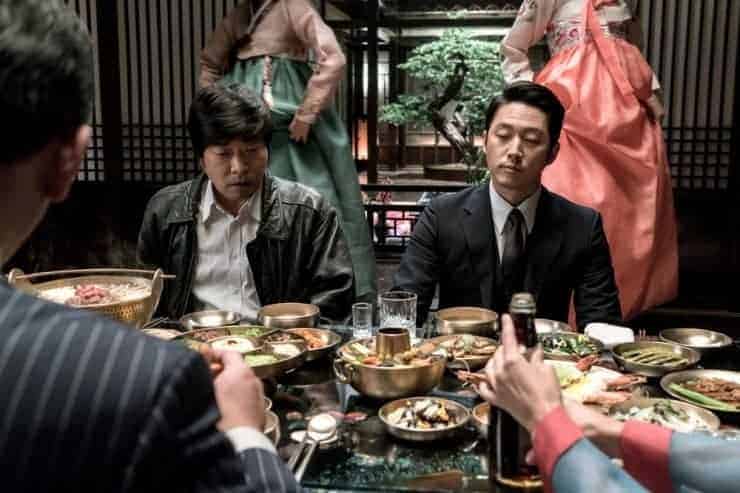Despite netting awards for Best Film, Best Actress (Kyoko Enami) and Best Director from Kinema Junpo and Best Film, Best Cinematography and Best Sound Recording from Mainichi, “Tsugaru Folk Song” is a largely forgotten title by ATG, which, however, has nothing to be shy of from the rest of the titles of the company. Tsugaru-jamisen or Tsugaru-shamisen refers to both the Japanese genre of shamisen music originating from Tsugaru Peninsula in present-day Aomori Prefecture and the instrument it is performed with. It is performed throughout Japan, though associations with the area remain strong. Tsugaru-jamisen is considered the most recognized genre of shamisen music, and has enjoyed multiple periods of popularity in Japan. Sato used the particular music extensively in his film, with its sound essentially dictating the rhythm here.
Isako and her much younger lover, Tetsuo, arrive in the fishing village in the middle of nowhere she grew up in, as he is on the run from yakuza, and she considers her town a place no one will ever find them. Tetsuo has trouble adapting there, and the fact they rent a rundown shed and the weather is always harsh, does not help at all. Furthermore, Isako was expecting to get some insurance money due to her father and brother dying in the sea, but finds herself having to face the unfairness of the system. Broken, she takes a job at a local hostess bar, while Tetsuo starts hanging around with a local blind girl, Yuki, who is particularly fond of him. Later on, he starts going out fishing with Tamezo, a bitter old man who is angry that all men in the village leave to work elsewhere for a large part of the year. It is later revealed that his son had run away with Isako in the past. As time passes, Tetsuo becomes more and more comfortable in the area, while the opposite is happening with Isako.
Koichi Saito directs a truly bleak story, a kind of social melodrama, as he presents a number of characters, who, for a number of reasons, are stranded in a place they want to abandon but fail to do so. The reasons each one has actually form one of the most interesting aspects of the movie, and are also the main source of the plethora of sociopolitical comments that appear throughout the movie. Isako is essentially there due to her love for Tetsuo, which is the reason that when she feels it is over, she starts feeling the need to leave once more. At the same time, the bonds of grief for the loss of her father and brother are still evident, as much as her wish to get the insurance money. That she fails to get it makes a comment about how the system works, with the fact that she is later essentially forced to work as a hostess to earn some money, both adding to the remark and highlighting another bond that does not let her leave. That love and lack of money essentially have the same result is a rather pessimistic comment here, which is actually how the whole film works.
Check also this interview
Tetsuo, on the other hand, finds himself having to live there due to his past and his ties with yakuza, but soon finds both a new woman to care for, in the face of Yuki, who cannot leave due to her situation, and a kind of father figure in Tamezo, who cannot leave due to his bitterness towards anyone who did. That Tetsuo meets his worst fortune when he finally decides to stay is another pessimistic comment, with Saito seemingly stating that staying in the area is essentially some kind of curse, with the people who died in the sea also moving towards the same direction. Lastly, the fact that the locals seem to mistrust and essentially despise all newcomers, mocking them as tourists, concludes this overall negativity about the particular but also all remote, secluded societies.
The way Isako's life unfold as the story progresses, could be perceived as a what if element, regarding what would have happened if she had stayed there, in probably the most intelligent aspect of the narrative. The way her life unfolds and ends in the area, provides another comment in the same line with the aforementioned.
Tsugaru Folk Song (1973) [Trailer] from Art Theatre Guild on Vimeo.
As mentioned before, the sound of the shamisen is a central part of the narrative, with the music dictating the pace of the movie, adding to the sense Saito wanted to give to each scene, and also inducing it with a sense of tension that elevates it much higher than the usual melodrama.
In contrast to many of ATG productions, there is not much experimentation here, neither in terms of narrative or cinematically, with the music essentially being the sole element that stands out. This however, does not mean that the production values are not on a high level. On the contrary, Noritaka Sakamoto's cinematography is impressive throughout, giving the movie a sense of ominous realism, with the bleak colors adding to the overall pessimism, and the waves of the sea giving it a hypostasis that is both beautiful and fatalistic. The work done in the sound is also excellent, particularly considering how clear it is in the particular, constantly windy setting. Tomoyo Oshima's editing is equally good, as it results in a rather fitting, relatively fast pace that suits the overall aesthetics and the somewhat episodic narrative here nicely.
Kyoko Enami is impressive throughout, with the way she stands out in the beginning in her red coat and her downward spiral being portrayed exceptionally, as much as her dead-end relationship with Tetsuo. Akira Oda in the latter role is also quite good, presenting his transformation artfully, while also highlighting the different aspects of his character eloquently. Mihoko Nakaga as Yuki is convincing as the girl in love, while Ko Nishimura as Tamezo occasionally steals the show with his bitter grumpiness.
“Tsugaru Folk Song” is among the most approachable ATG films, but also one of its better titles, a true hidden gem.
















